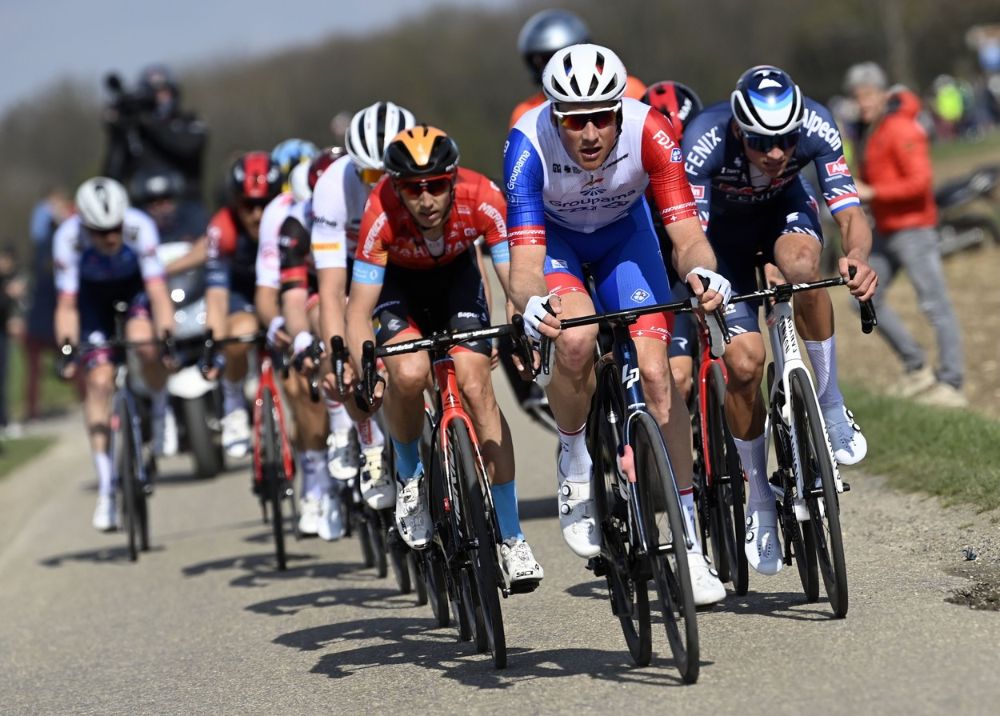As already stated, this mechanism is usually used in sports involving round or oval balls. It has rarely, if ever, been used in cycling. That has now changed. At the end of 2018, UCI President David Lappartient announced a wide-ranging reform of UCI regulations. These came into force on January 1, 2020, and include the current system of automatic wild cards for the best ProTeams of the previous year (currently Alpecin-Fenix and Arkea-Samsic); a limit of 18 teams that will be granted licenses to race at the top level; and the allocation of WorldTour licenses in 2023 for three-year periods (e.g., 2020-2022, 2023-2025, etc.).

At the end of each three-year period, every team that wishes to hold a WorldTour license must apply or re-apply to the UCI. We are currently in the final year of the first three-year period, which means that the UCI will be looking at applications and issuing licenses for the next three-year period, which begins next year. This means that for the first time, licenses will be awarded for the next to the teams ranked in the UCI’s top 18, based on points won over the past three seasons.
Currently, according to the points counted up by Lanterne Rouge, eight teams are struggling to avoid relegation, with Israel-Premier Tech, Lotto-Soudal and Peter Sagan’s new team, TotalEnergies, sitting below the cutoff point and in real danger of not racing in the top tier from 2023 to 2025. The teams in difficulty are blaming the controversial way points are allocated for their predicament.
To begin with, only the points from the top 10 riders from each team are counted each year. Points from national championships and international events count towards a team’s total but only if these points have been won by a top-10 rider. Points won by other riders – for example, by a rider on a development team associated with a WorldTour team – are not counted. But that’s just the beginning.
Matt White, head sports director of BikeExchange-Jayco – which now sits in 17th place, just two spots above relegation – told Cycling Weekly, “I don’t believe the points system is appropriate. It’s totally stacked in favour of one-day races.” He went on to say: “It doesn’t make any sense that a 1.1 race has such value. Some of these races have three WorldTour teams. How is that worth more than a stage of the Tour de France? If one of our guys finishes fourth [in a Tour of the Basque Country stage], a WorldTour race, they get nothing, but they could go to Volta Limburg, a 1.1, finish 10th and get 20 points. It’s crazy.”
Specifically, a rider who wins a stage of a WorldTour stage race, such as the Tour of the Basque Country, would earn 50 UCI points, while the fourth-place rider picks up none. But a rider winning a UCI 1.2 one-day race, which WorldTour teams rarely enter, earns 40 points, and the rider in 10th place collects three points.
No wonder some of the teams are up in arms. They have been forced to balance point-gathering by riding in low-profile races with pleasing their sponsors by participating in prestige WorldTour competitions. “It definitely affects where we’re sending riders,” White said. “We’re doing more one-day races this year than we’ve ever done. We’ve never had pressure from sponsors to do these small one-day races that are usually a chore to get to. We’ve always had the mindset that specific training is more important than going to competitions just to get points, so we’ve had to adjust this year to make sure we get into the top-18.”




